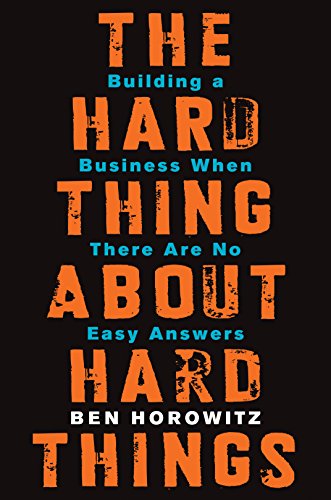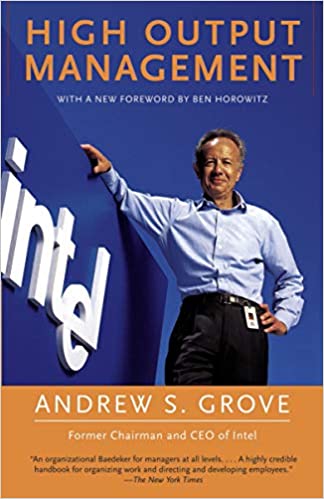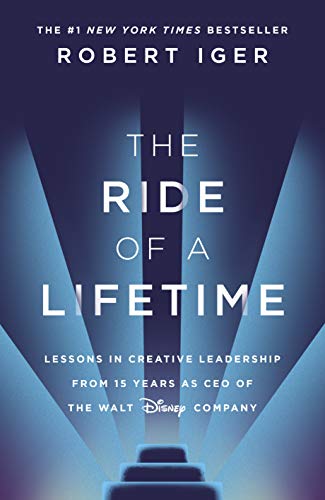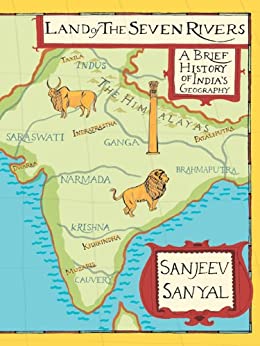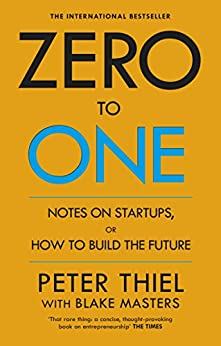2020 was an exceptional year mostly consumed by the pandemic that caused unprecedented disruption globally, a year that many will remember forever but would like to forget. Most of the books I read during the year were around start-ups and management. In this blog, I have briefly covered some of the books I enjoyed reading during the year.
The Hard Thing About Hard Things – Ben Horowitz
Ben has shared his personal experiences in this book with profound insights into how to run an organization, starting from hiring the right executives, taking care of people and products, dealing with uncertainty and a lot more. While a lot of his lessons might appear to be applicable only in start-ups, I strongly believe they are relevant for any organization. Any big company using the excuse of being a large enterprise to tolerate inefficiencies, mediocrity, politics and sticking to outdated ways of working is certain to disintegrate and disappear over time, unless senior leadership stems the rot before it is too late. We have numerous examples of great companies disappearing rather quickly as they failed to adapt to changing business landscape. Ben has derived much inspiration from Andy Grove’s High Output Management, which was my next read.
High Output Management – Andy Grove
This book from almost forty years back is quite relevant even today. That a manager is primarily accountable for the success or failure of an organization is captured by the single most important sentence of this book: The output of a manager is the output of the organizational units under his or her supervision or influence. Many managers ascribe success to their own abilities but attribute failure to others, this behaviour is irresponsible and hollow. Every manager in information technology domain should ponder over the three questions that Andy asks:
- Are you adding real value or merely passing information along? How do you add more value?
- Are you plugged into what’s happening around you? And that includes what’s happening inside your company as well as inside your industry as a whole. Or do you wait for a supervisor or others to interpret what is happening?
- Are you trying new ideas, new techniques / technologies and personally trying them, not just reading about them? Or are you waiting for others to figure out how they can re-engineer your workplace – and you out of that workplace?
The Ride Of A Lifetime – Robert Iger
This was one of books recommended by Bill Gates and a Sunday Times Book of the Year 2019. Robert Iger became CEO of The Walt Disney Company in 2005 during a difficult time marked by digital disruption. He led Disney through acquisition of Pixar, Marvel, Lucasfilm and 21st Century Fox, and launch of Disney+ with excellent original content (particularly special for a Star Wars and Mandalorian fan). He signed off as CEO after making Disney the largest and the most respected media company in the world. He achieved this by brutally focusing on three clear strategic priorities from the day he became the CEO:
- Devote most of the time and capital to the creation of high-quality branded content.
- Embrace technology to the fullest extent, first by using it to enable the creation of higher quality products, and then to reach more consumers in more modern, more relevant ways.
- Become a truly global company.
The book revolves around the ten principles that he calls out as necessary for true leadership: Optimism, Courage, Focus, Decisiveness, Curiosity, Fairness, Thoughtfulness, Authenticity, Integrity and The Relentless Pursuit of Perfection.
Land Of The Seven Rivers – Sanjeev Sanyal
This book was recommended by one of my friends towards the end of 2020 and turned out to be a page-turner that I completed in less than two weeks. I have read several English books on western history and always yearned for a good one on India. This book fulfilled that quest! Starting with Rodinia and Pangea from millions of years back, the book beautifully traces to Sapta-Sindhu (Land of the Seven Rivers). I have read about River Saraswathi (usually quoted from Rig Veda) in the past but this book provides the best historical details, and connects to current geographical features. Next time I visit Delhi, Haryana and Rajasthan, I will make it a point to see Ghaggar river. The events from Mauryan empire through Guptas, Mughals and British to the current Independent India are covered quickly but includes all significant events that shaped India to its current form. Indeed, a brief history of India’s geography!
I always wondered why India, which was once a great civilization, did not keep up with the West in progressing during the last thousand years. Sanjeev has an insightful explanation! There appears to have been a shift in India’s cultural and civilizational attitude towards innovation and risk-taking from the end of the twelfth century. There are many signs of the closing of the mind:
- Sanskrit, once an evolving and dynamic language, stopped absorbing new words and usages and eventually fossilized. Sanskrit literature became obsessed with purity of form and became formulaic.
- Similarly, scientific progress halted as the emphasis shifted from experimentation to learned discourse.
- Al-Biruni, writing at the same time that Mahmud Ghazni was making his infamous raids, commented that contemporary Indian scholars were so full of themselves that they were unwilling to learn anything from the rest of the world. He then contrasts this attitude with that of their ancestors.
Hackers: Heroes of the Computer Revolution – Steven Levy
Steven explains how “Hacker Ethic” evolved over three decades starting from the closed community of early mainframe hackers on time share terminals at MIT, to the open community of self-made hardware hackers out of their garages at Silicon Valley, finally paving the way for game hackers. Refer to my blog for my notes from this book.
Zero to One – Blake Masters & Peter Thiel
My reading habit also took a hit during the first couple of months of pandemic but I restarted reading books in June with this start-up book that I covered in an earlier blog.
